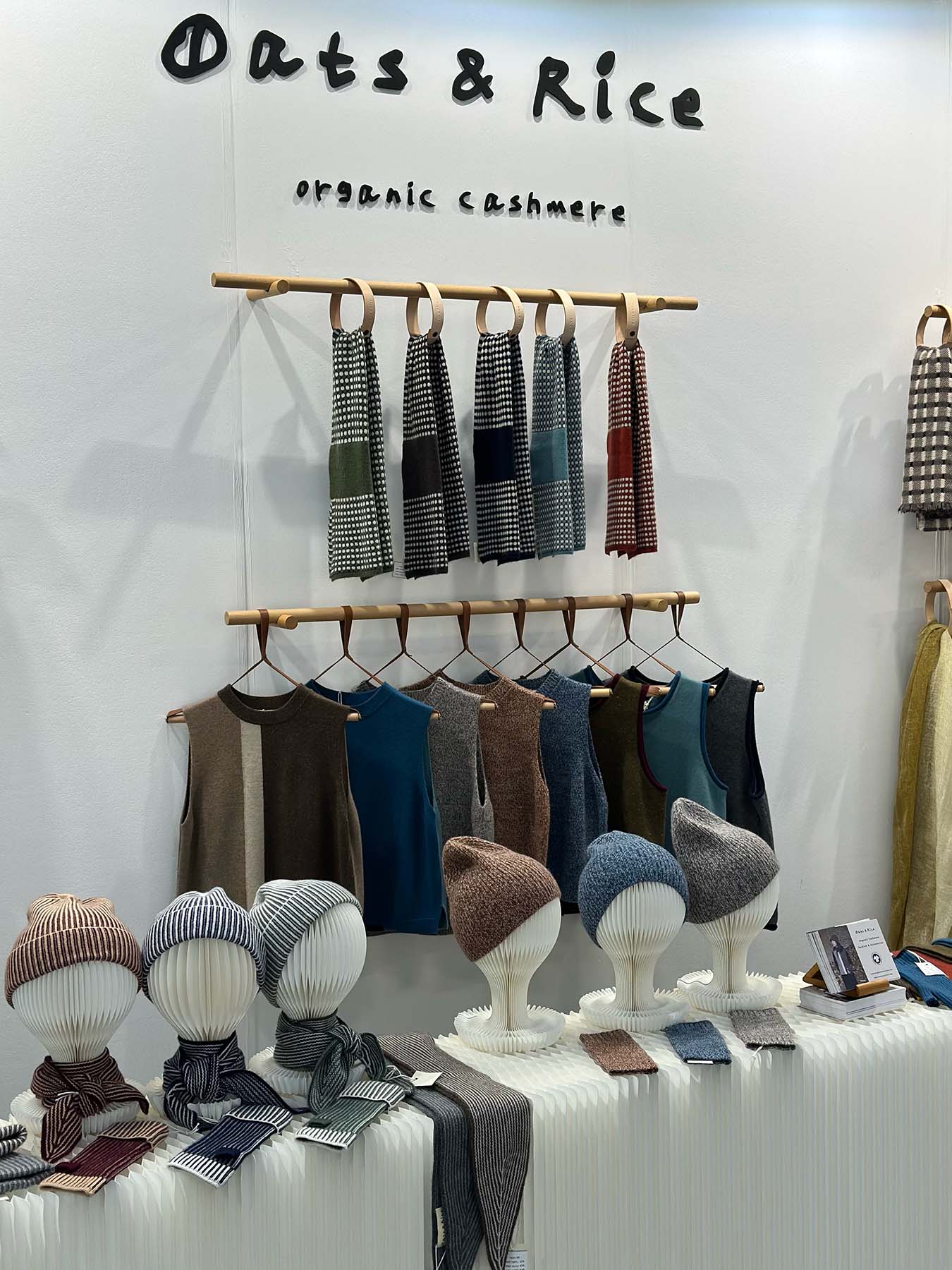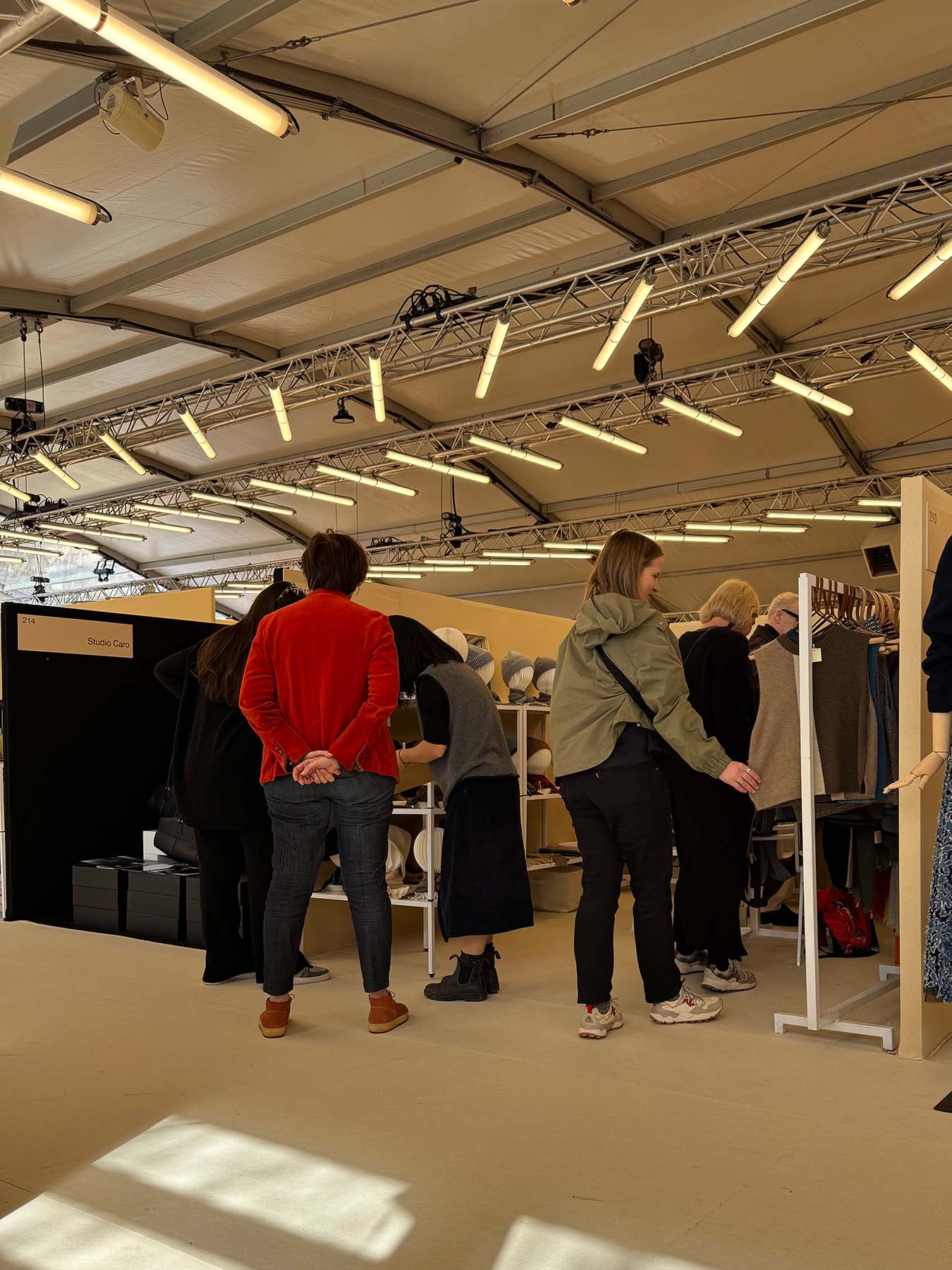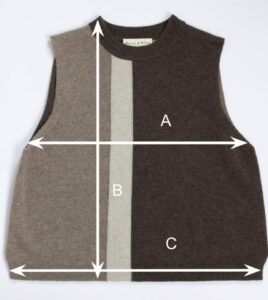Our Story
An Organic Cashmere Accessories Brand
Oats & Rice founder Shiyi created the company in 2015, shortly after graduating from Winchester School of Art in the UK. She immersed herself in the traditional textile world with overflowing curiosity and passion. At the Kawashima Textile School in Kyoto, she studied the kasuri (ikat) weaving technique. She also trained under the watchful eye of a Japanese shifu weaving master, learning the craft of making shifu – a fabric woven from washi paper cut into fine strips, twisted into thread, and then woven like yarn.
Her textile journey later took her to Inner Mongolia, where she envisioned the sustainable cashmere supply chain we use today.

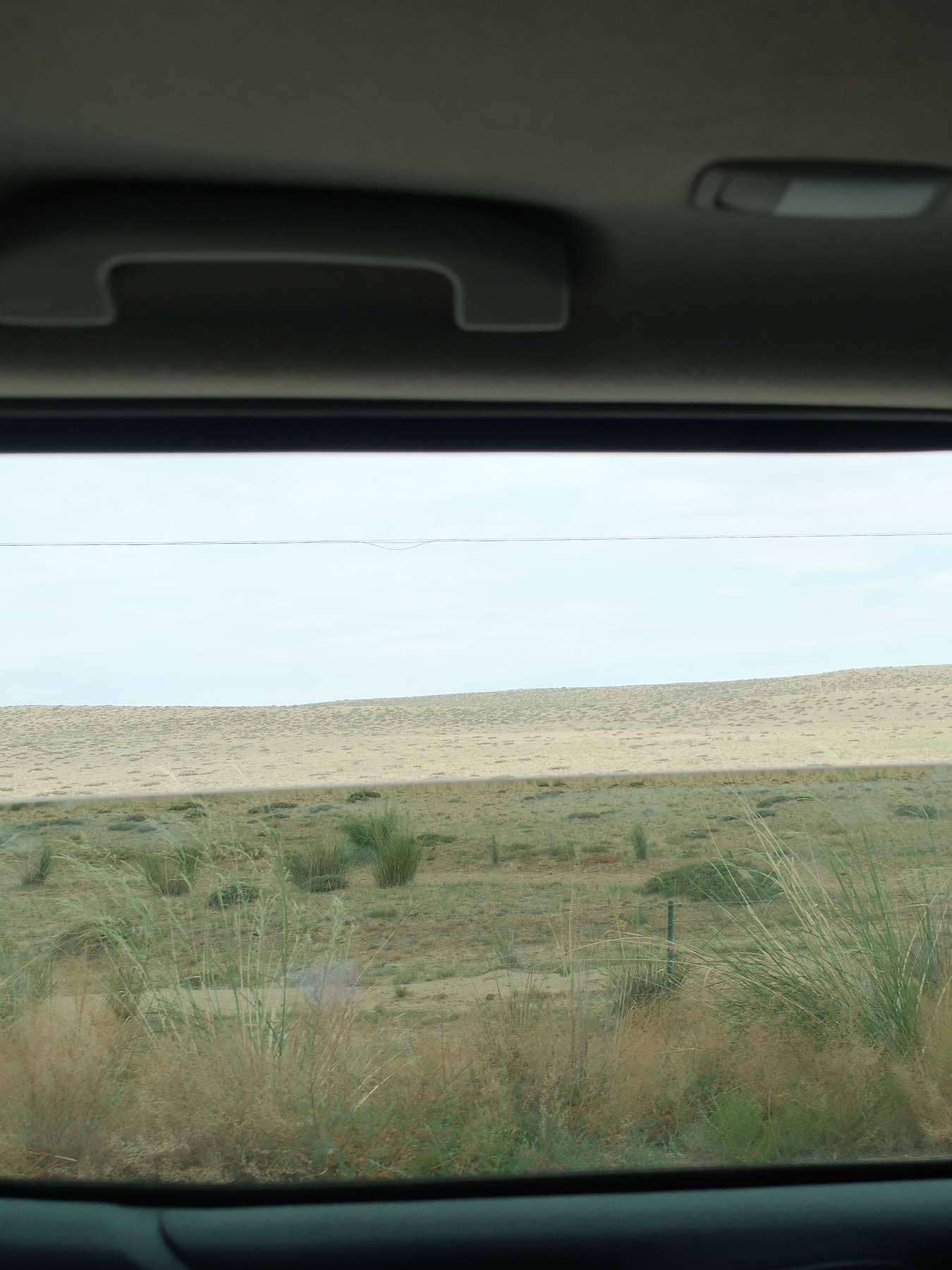
Why We Use Organic Cashmere
Single Source Pasture
Most of our yarn comes from a 573-hectare organic pasture in the Albas region of Otog Banner, Inner Mongolia – ensuring complete traceability.
No Chemicals, Ever
The farm is managed without fertilisers, pesticides, or other chemicals, which helps protect the soil, animals, and surrounding environment.
Certified and Trusted
The pasture is USDA Organic certified, and every batch of yarn is GOTS (Global Organic Textile Standard) certified – the world’s leading benchmark for organic textiles.
Our creations don’t have to come at the planet’s expense. By choosing organic cashmere, we support farming practices that protect the land, respect the animals, and avoid harmful chemicals. This allows us to create beauty and quality in our products without depleting the environment we all rely on.
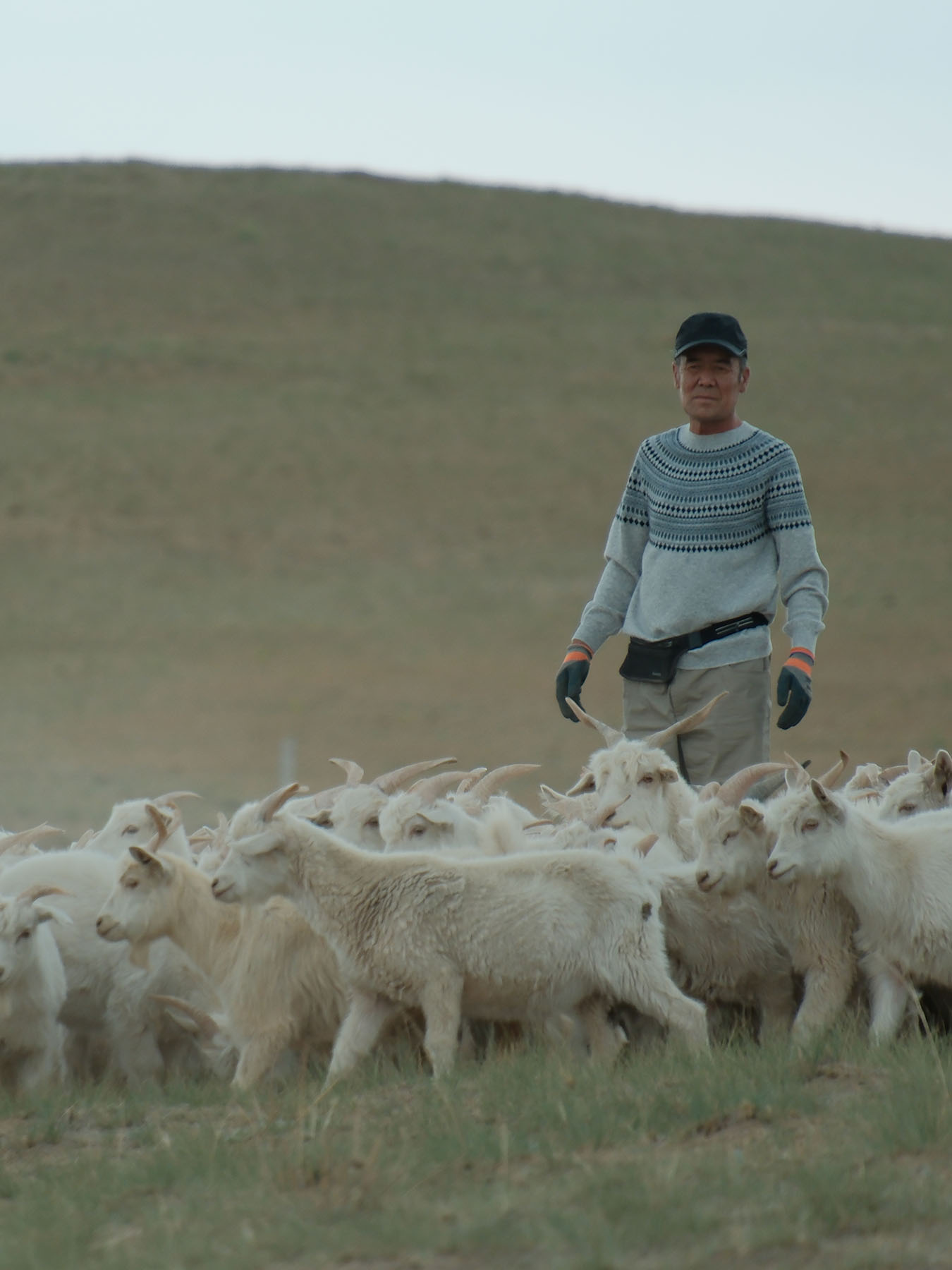
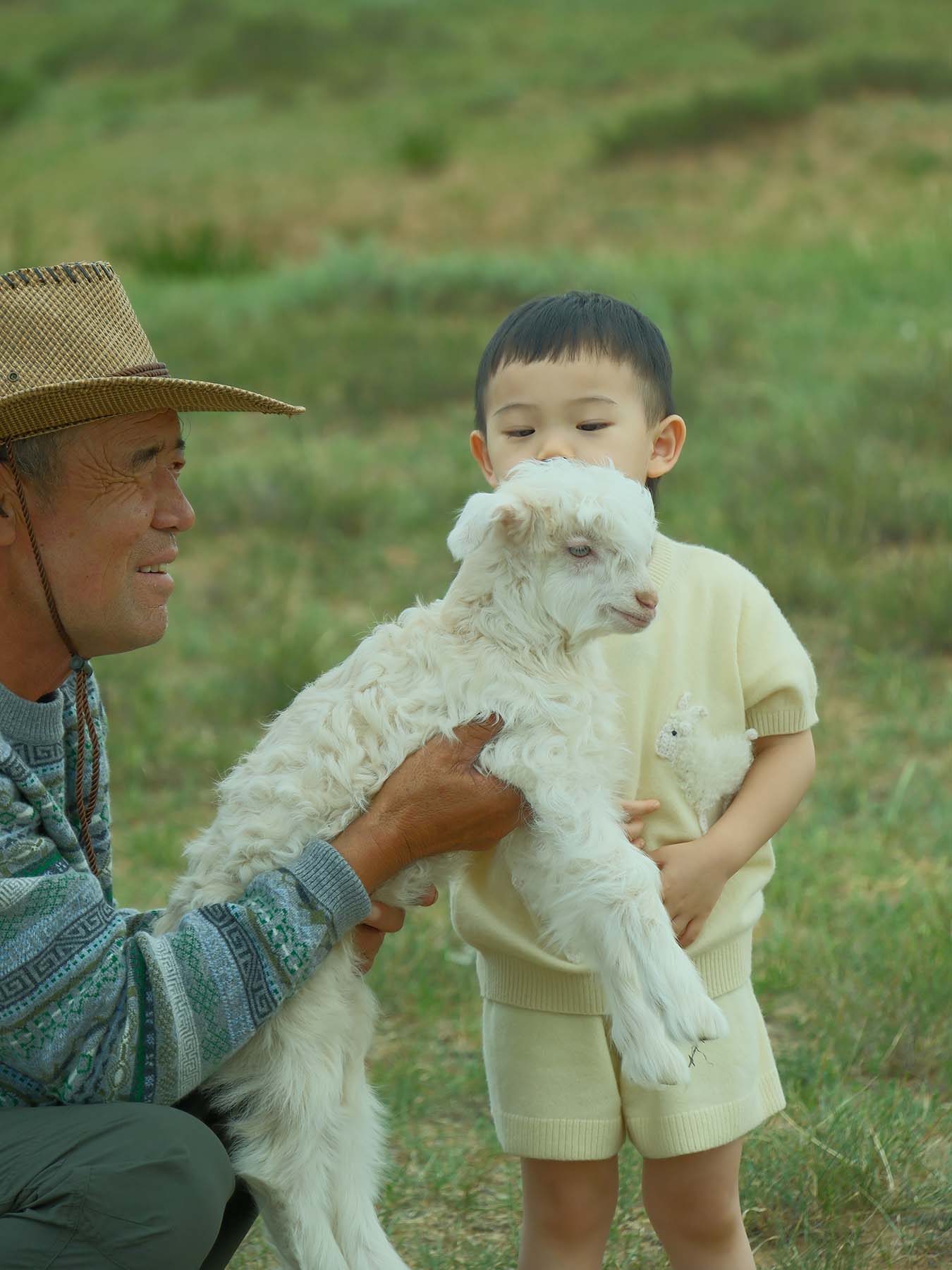
The Limitation of Organic Cashmere
Limited Quantities
Why don’t we use organic cashmere in every product? Simply because availability is limited. The 573-hectare organic pasture produces only a modest harvest each year, and supply is beyond our control. We purchase what is available, batch by batch. For us, the important thing is to keep moving forward – each piece made with organic cashmere is a step in the right direction.
Small Harvests, Big Impact
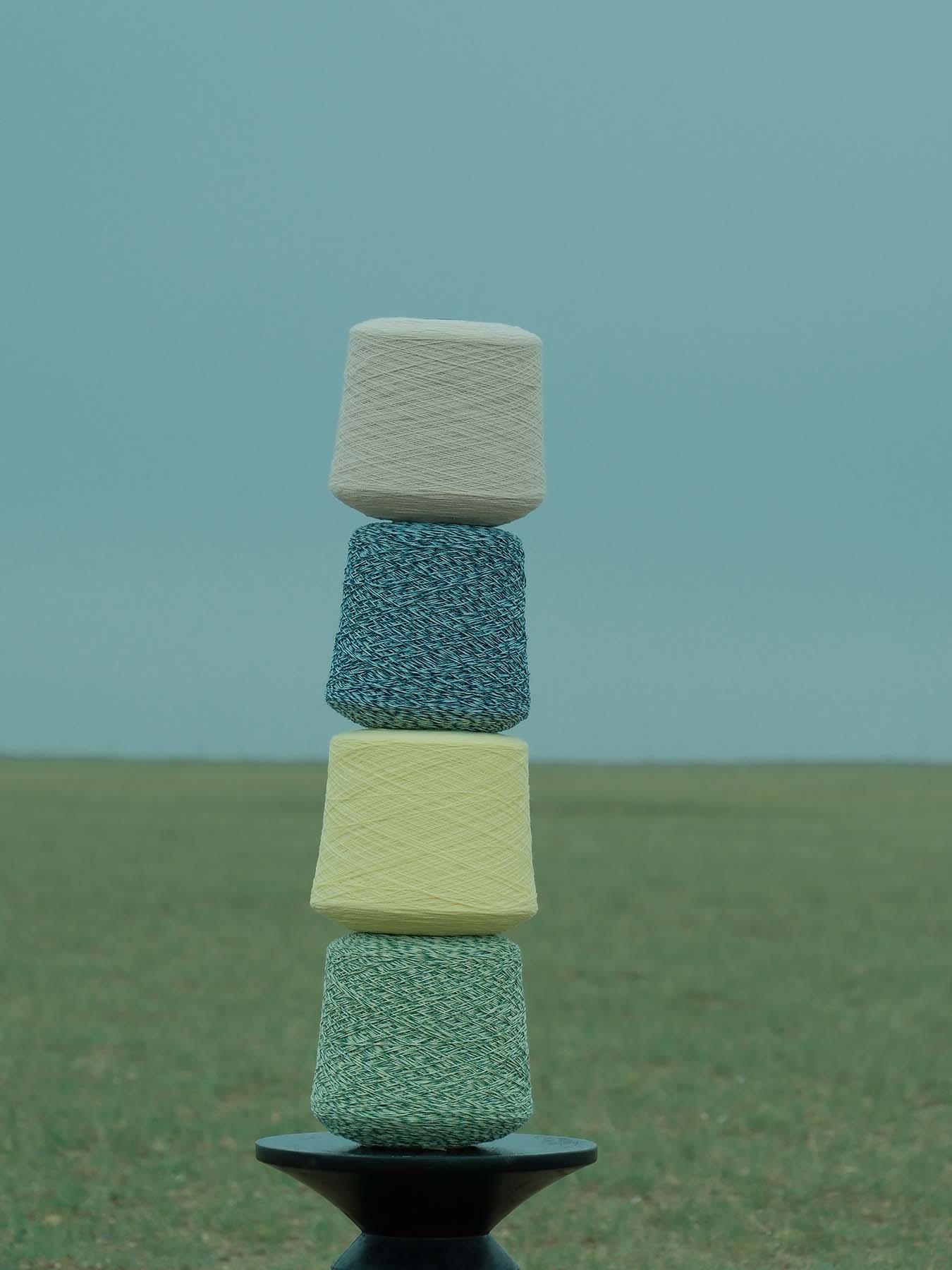

Our Vision
Subtle and Refined Design
When we design our patterns, we consider how harmoniously they will fit into your wardrobe. We don’t want them to be hidden, nor do we want them to stand out. Instead, we take pride in elevating classics, giving them a more alluring presence.
Nuanced Sensory Experience
Unobtrusive beauty is what we stand for. We love versatile patterns and use a range of knitting techniques to create unique textures and pieces that feel distinctive. You can see this principle at work in our collection of cashmere scarves. The finest cashmere offers a luxurious sensory experience, and our designs use it to evoke feelings of happiness, calm, and comfort. Every piece we create serves this purpose.
“Simplicity, carried to extreme, becomes elegance.” – Jon Franklin

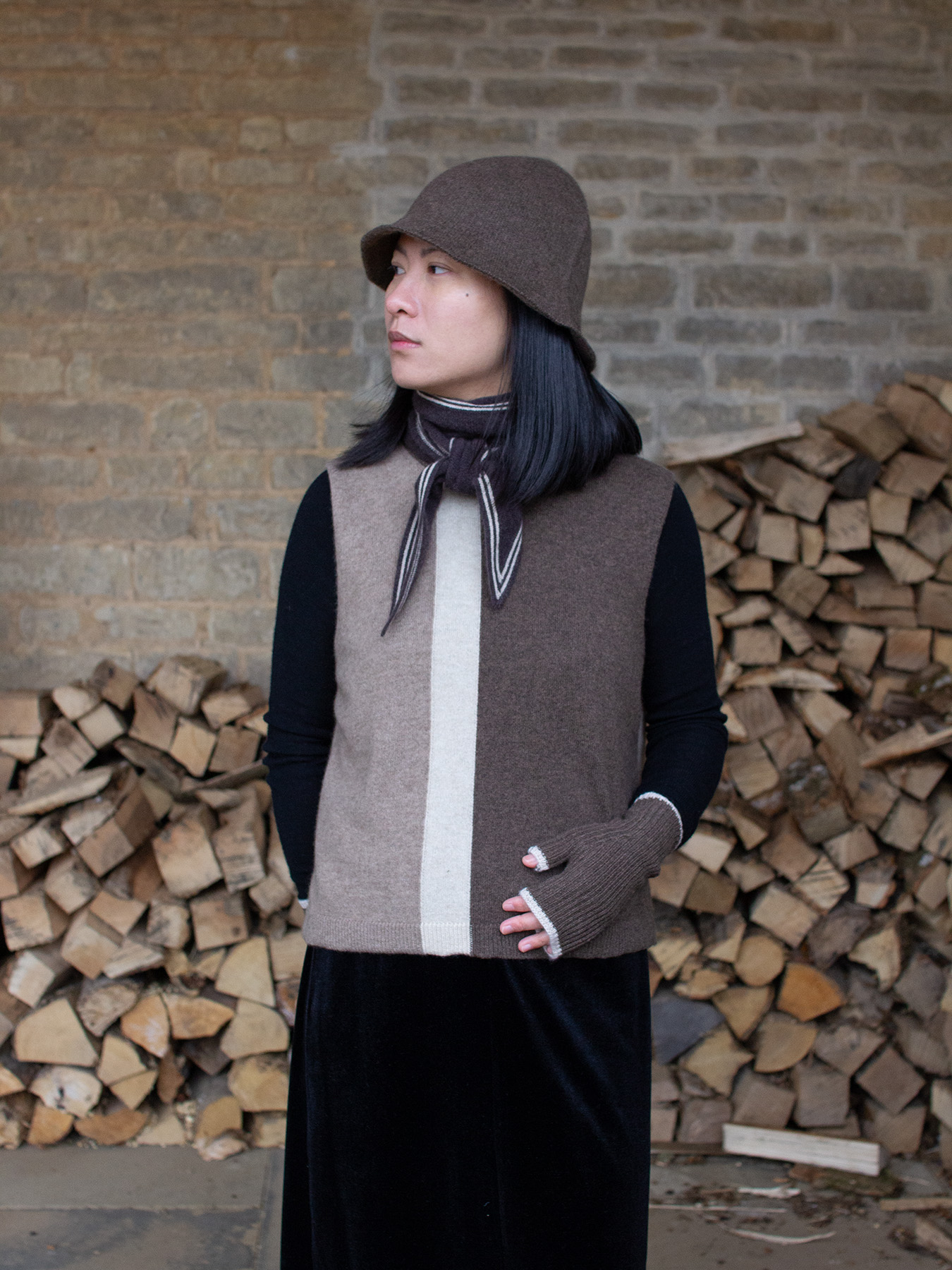
Where We Are Now
Global Fashion Trade Shows
Each year we present our collections at leading fashion and gift trade shows. You may have spotted us in Paris, New York, Copenhagen, London, or Tokyo!
More than 200 Stockists Worldwide
Our products have found their way into more than 200 wonderful stores across the globe, and that number continues to grow. We’re very grateful for the trust and support of our retailers. They often tell us how well our pieces resonate with their customers and share valuable feedback. Listening to them helps us keep moving forward with both confidence and humility.
From humble beginnings to international presence, our journey has grown into something we’re both proud of and humbled by.
Today, Oats & Rice is showcased at major trade shows around the world and carried by hundreds of stockists. Each step forward is made possible by the trust of our partners and the support of people who believe in what we create. Thank you!
